The most legendary of all the Mercedes-Benz E-Class ancestors—and perhaps of all Mercedes-Benzes, period—is the W123, which was sold in the United States from the 1977 through 1985 model years. The W123 was rugged yet comfortable, and the majority sold here had diesel power. Today’s Junkyard Gem is a harder-to-find gasoline-burner, found in a Colorado car graveyard a couple of years back.
In 1979, American car shoppers had vivid memories of the 1973 OPEC oil embargo and were experiencing gasoline rationing and yet more skyrocketing of fuel prices in the wake of the 1979 Iranian Revolution. Diesel fuel was cheaper and easier to obtain than gasoline during that period, and so most W123s sold here up to that point were oil-burners, either terrifyingly slow 240s with four cylinders or annoyingly slow 300s with five cylinders. Starting in the 1981 model year, the turbocharged diesel out of the proto-S-Class W126 arrived in US-market W123s, but 1979 American W123 buyers had to choose between diesel slowness or gasoline speediness with risk of gas lines.
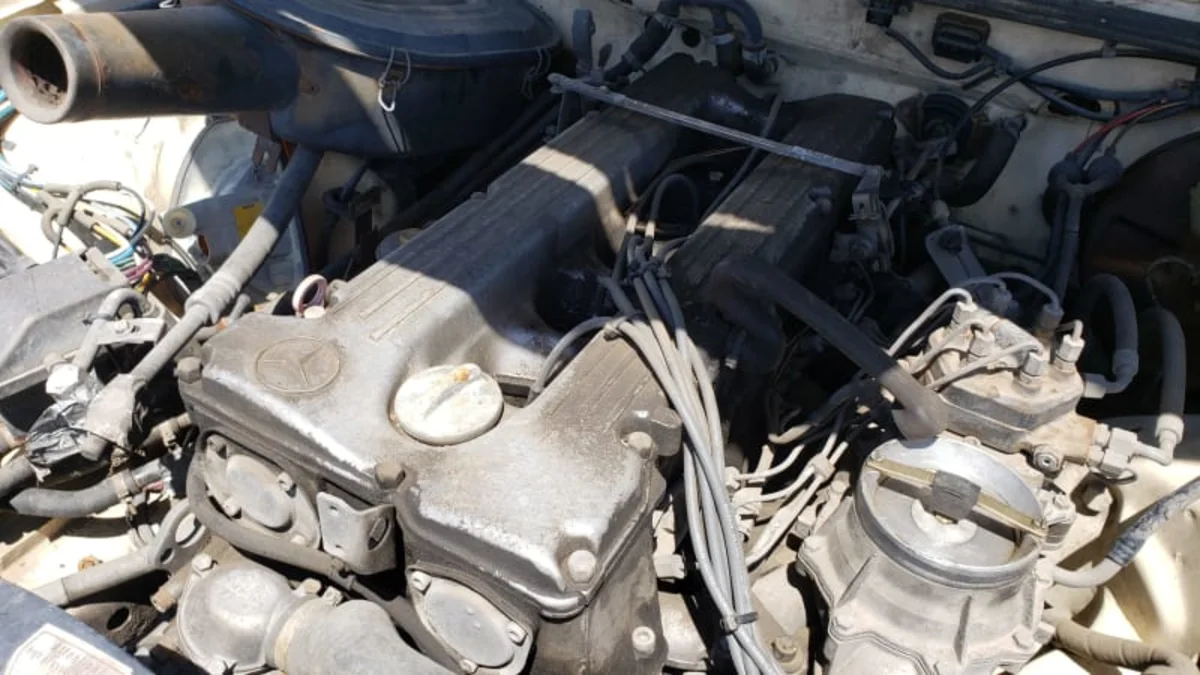
The buyer of this car took the latter choice, which probably seemed wise when gasoline prices crashed in the middle 1980s. This is a 2.8-liter (actually 2.746-liter, but we’ll give it credit for an extra five cubic centimeters and round up) straight-six, rated at 142 horsepower and 149 pound-feet. The 240D had 62 horsepower and the 300D/300CD/300TD had 77 horsepower that year.
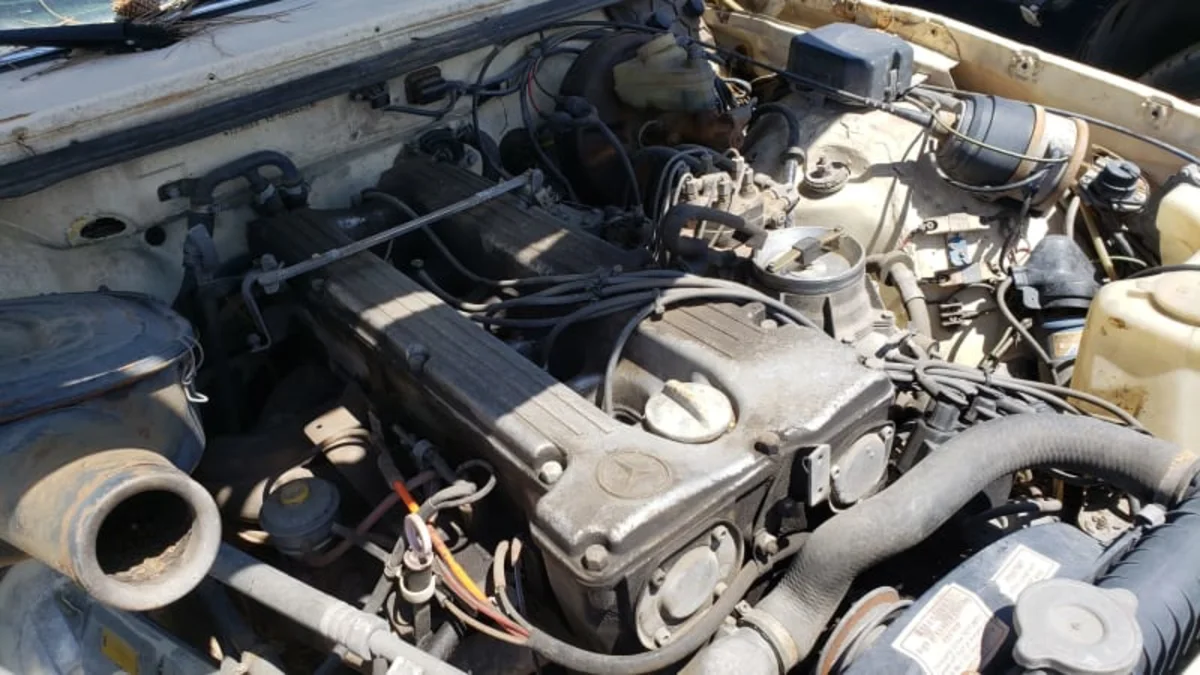
Starting in the 1981 model year, all new US-market W123s were diesel-only.
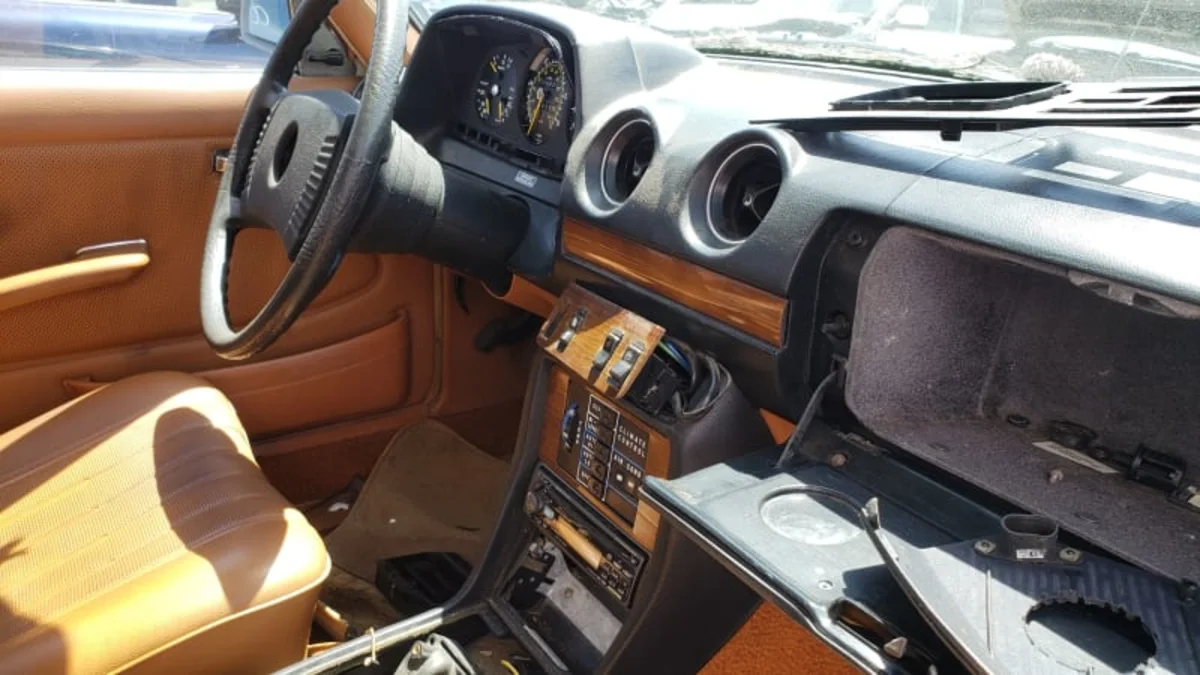
If you wanted an automatic in your US-market 280E in 1979, too bad! The only transmission available was a four-speed automatic. In fact, the only new Mercedes-Benz with three pedals available at American dealerships in 1979 was the 240D with a four-on-the-floor.
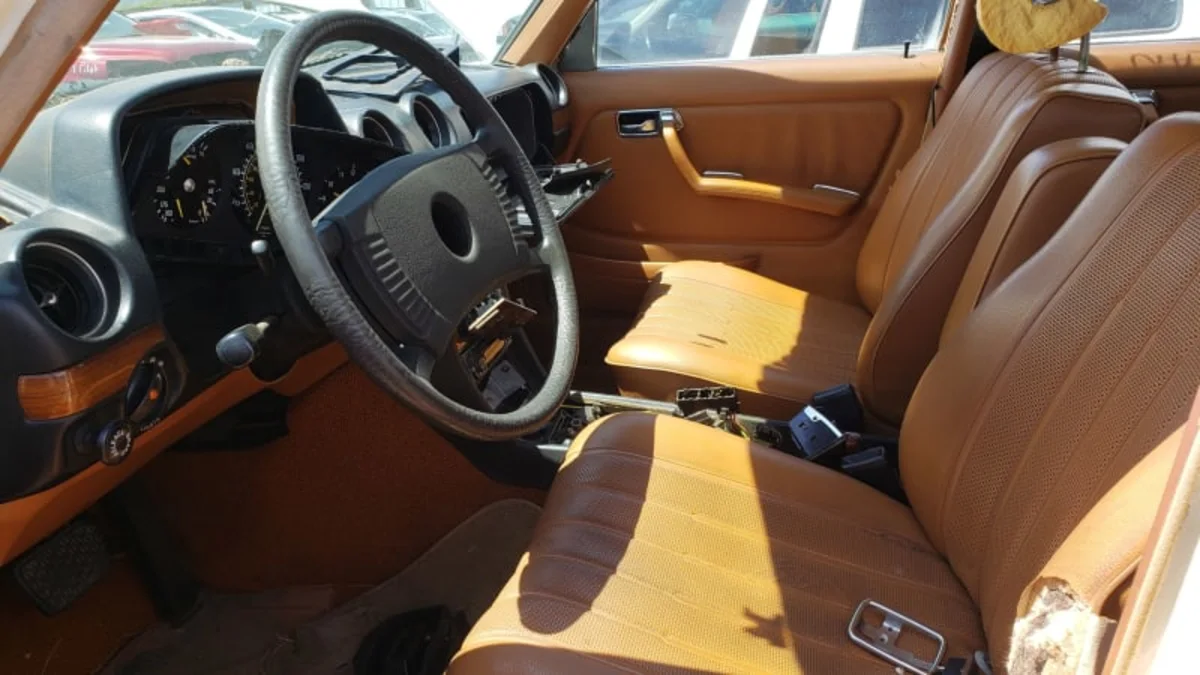
The interior in this car is very nice for a 42-year-old car in Colorado’s harsh climate.
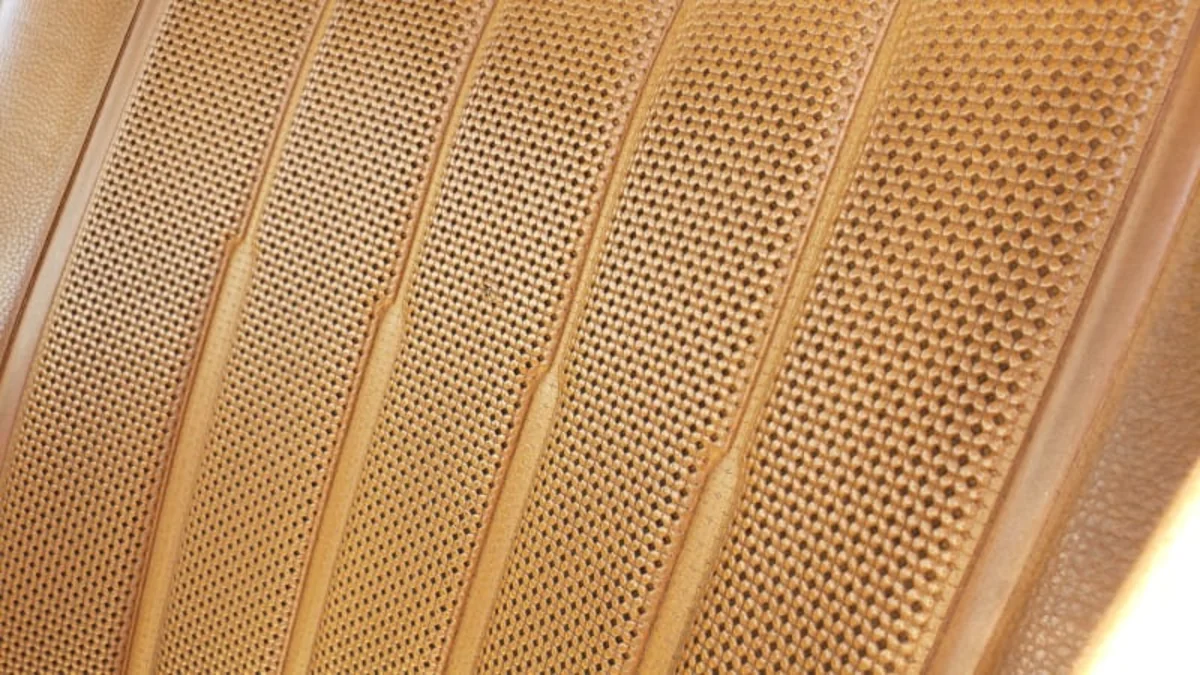
Part of that is the indestructible MB-Tex fake leather on the seats. If there’s any fabric used in motor vehicles that can outlast this stuff, I haven’t heard of it.
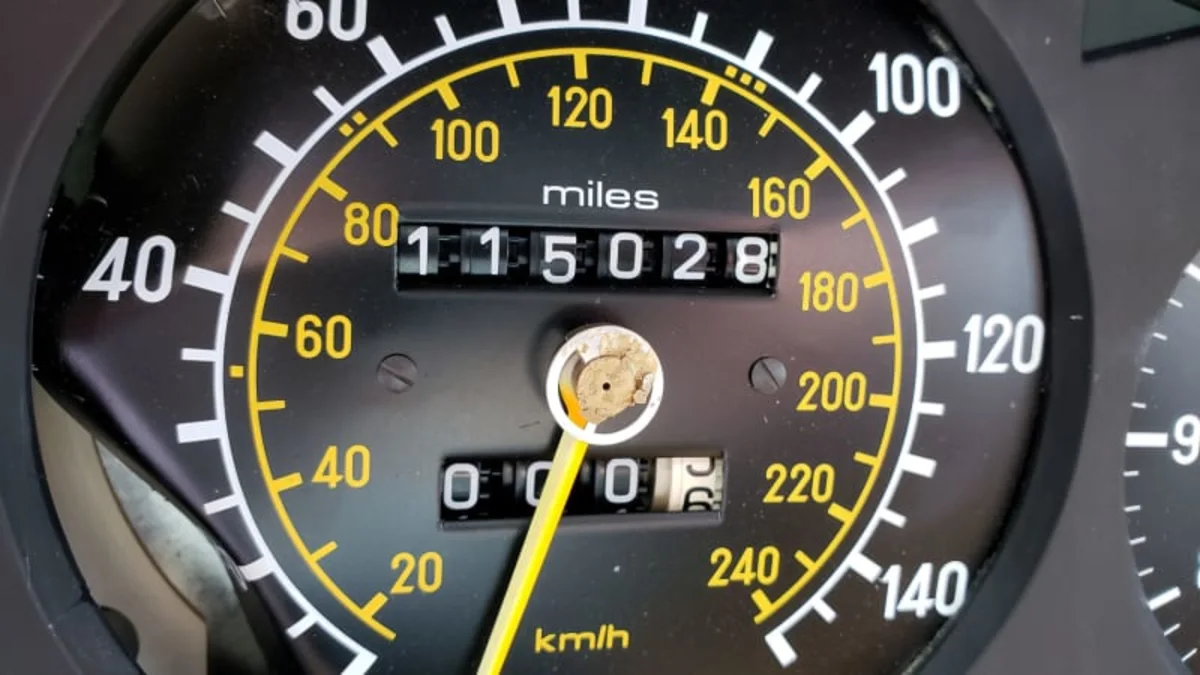
Just over 115,000 miles on the odometer, which is laughably low by W123 standards.
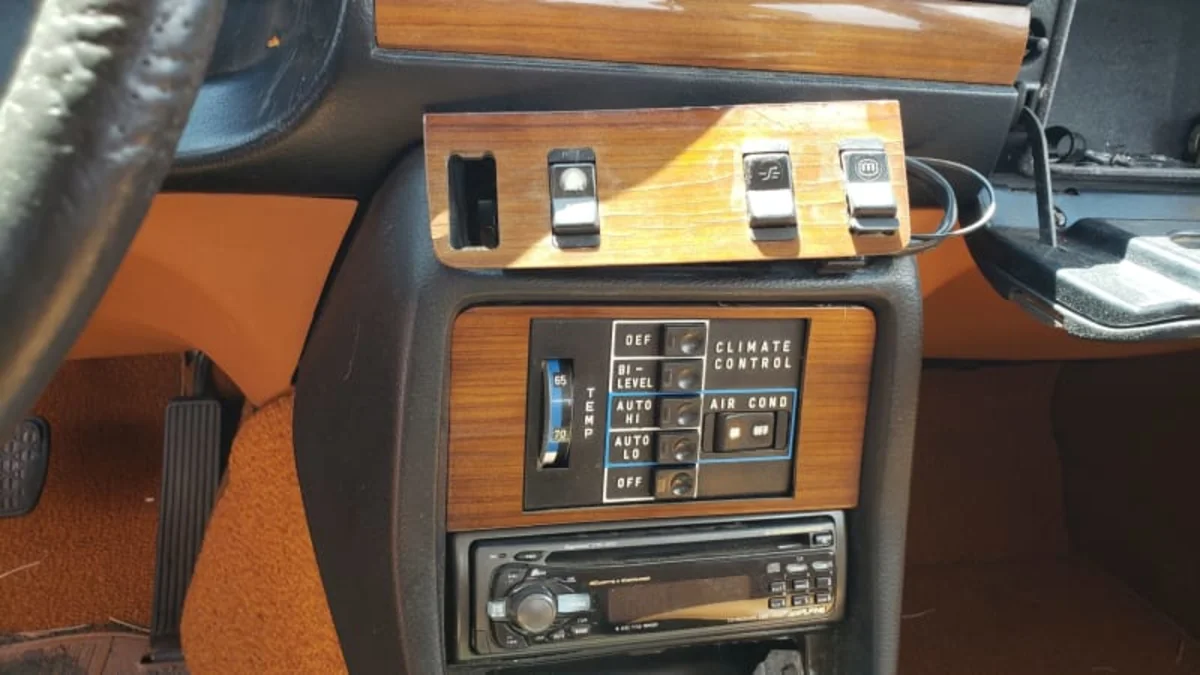
The MSRP for this car was $20,996, or about $93,256 in 2023 dollars. Meanwhile, a new 1979 Cadillac Fleetwood Brougham, which was bigger, more powerful and generally more opulent, cost just $14,102 ($62,635 now); a 1979 Toyota Cressida Luxury Edition listed at a mere $8,879 ($39,437 today). If you wanted Mercedes-Benz build quality and prestige back then, you had to pay serious money for it.
Mercedes-Benz pushed hard for diesel wagon sales in the United States in 1979, so that’s the commercial we’ll watch.
Read the full article here


